In the current era of industrial production moving towards high precision and intelligence, the precise control of material tension has become a key factor determining product quality and production efficiency. ABB tension load cells, with innovative Pressductor technology and excellent performance, have become benchmark products in the field of industrial tension measurement. Whether it is the tension control of paper during the high - speed operation of paper machines, the tension stabilization of yarns in textile machinery, or complex scenarios such as metal processing, printing, and packaging, ABB's tension load cells, with their high - precision and high - stability measurement performance, provide solid guarantees for the smooth operation of production processes and quality improvement in various industries, occupying an indispensable position in the process of industrial automation.
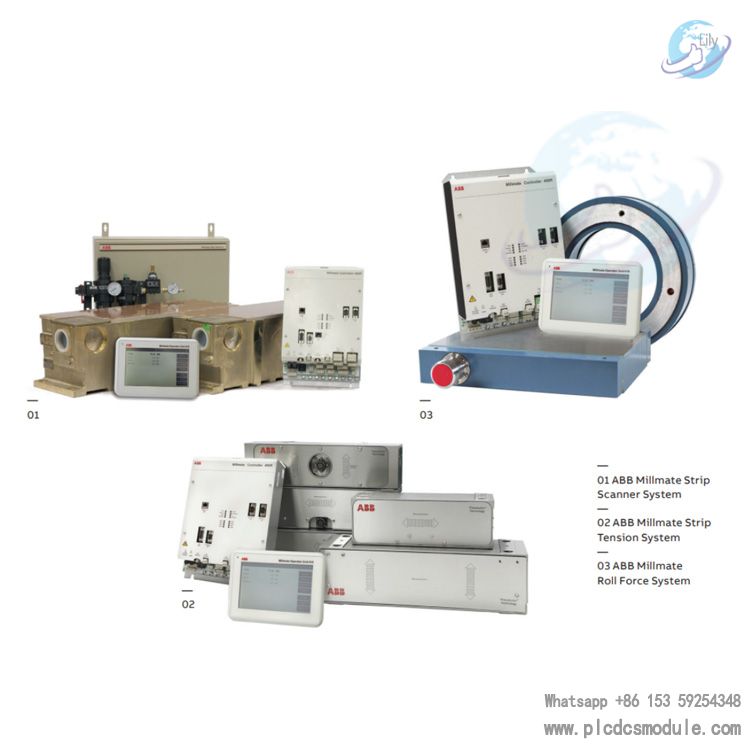
I. Working Principle
ABB tension weighing sensors adopt advanced Pressductor technology, which is based on the magnetic properties of certain steel materials and generates signals corresponding to the applied force through the magnetoelastic effect. In the internal structure of the sensor, two mutually perpendicular copper wire windings pass through the four holes of the steel membrane. One set of windings is energized to generate a magnetic field. When the sensor is subjected to mechanical force, the magnetism of the magnetoelastic steel changes the magnetic flux pattern, thereby inducing an alternating voltage in the other set of coils that is proportional to the magnitude of the applied force.
Different from traditional sensors that rely on physical movements (such as stretching or bending measuring elements) to generate electrical signals, Pressductor technology endows ABB tension weighing sensors with stronger stability, enabling them to operate reliably in complex working environments.
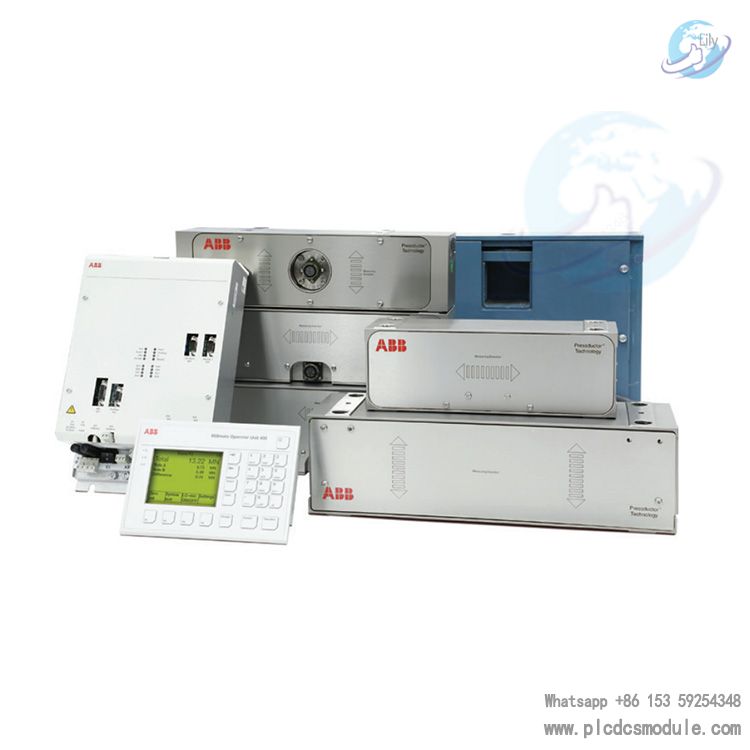
II. Product Characteristics
1. Extremely High Stability and Reliability
The series of sensors feature excellent overload and impact resistance, effectively preventing calibration failure and instrument damage caused by overload or impact. Even under overload conditions up to 300% to 1000% of the battery capacity (specific values vary by sensor type), they can still maintain stable operation. Under typical industrial load conditions, their deflection ranges only from 0.02 to 0.05 mm, with displacement 10 to 100 times smaller than that of motion-based devices, significantly enhancing the stability of the measurement process.
2. Exceptional Anti-Interference Capability
From a design perspective, ABB tension weighing sensors are dedicated to minimizing the impact of various interferences. Whether it is induced current generated during signal wiring or interference from other wireless devices, they hardly affect the sensors. This enables the sensors to accurately measure tension in complex electromagnetic environments, providing reliable data support for the production process.
3. Adaptability to Harsh Environments
ABB tension weighing sensors demonstrate remarkable adaptability in harsh environments with heavy moisture and smoke, such as paper mills. Since their working principle does not rely on mechanical movement, there will be no abnormal mechanical stoppers caused by pollutant intrusion or corrosion, effectively avoiding problems such as narrowed measurement range, reduced sensitivity and accuracy. In addition, the sensors can also well cope with vibrations and temperature changes common in daily factory operations, ensuring long-term stable operation.
4. High Measurement Accuracy
They can provide extremely precise tension measurement results. For industrial production links with strict requirements for material tension control (such as high-precision textile and electronic material processing), they can strongly guarantee the stability and consistency of product quality and significantly reduce the defect rate.
5. Diverse Output Signals
They typically provide analog signals (such as 4 - 20mA or 0 - 10V) and digital signals (such as RS485 communication interface) for output, making it easy to connect with various control systems and monitoring devices, fully meeting the data transmission and processing needs of different users and different industrial scenarios.
6.Diverse Types and Wide Applications: With a variety of sub - types such as magnetostrictive, pillow - block type, and strain - gauge type, along with corresponding models, it can be adapted to numerous industrial fields including papermaking, textiles, metal processing, printing and packaging, cable manufacturing, etc., meeting the tension measurement and control requirements of various complex industrial scenarios.
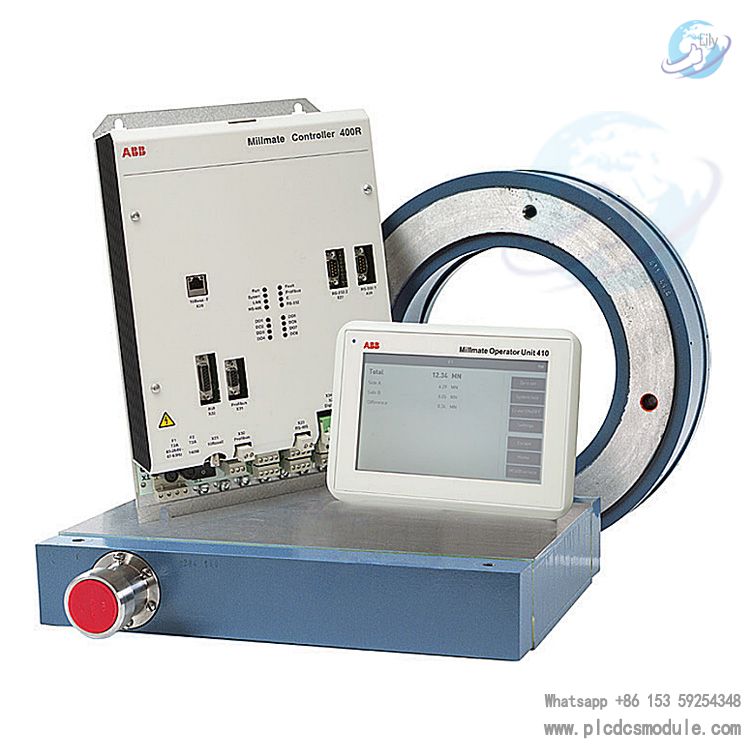
III. Application Fields
1. Paper Industry
During the operation of paper machines, they can produce paper up to one kilometer in length and five meters or wider per minute. Improper control of web tension will significantly affect paper quality and machine operation efficiency. ABB tension weighing sensors can accurately measure and regulate tension in the paper production process, ensuring uniform paper thickness and smooth surface, reducing problems such as paper wrinkles and breakage, thereby improving paper quality and production efficiency.
2. Textile Industry
In the textile production process, tension control of yarns and fabrics is closely related to fabric quality. ABB tension weighing sensors can real-time monitor and adjust tension in the textile process, preventing yarn breakage and fabric wrinkling, ensuring uniform fabric density, and enhancing the quality and production efficiency of textiles.
3. Metal Processing Industry
Taking cold rolling mills and hot rolling mills as examples, precise tension control is required during the rolling of metal sheets to ensure uniform sheet thickness and defect-free surfaces. ABB tension weighing sensors can accurately measure and control tension, avoiding problems such as wavy edges and deviation of sheets, improving the quality and production efficiency of metal processing.
4. Printing and Packaging Industry
In the printing process, unstable tension of printing materials such as paper or film will lead to misregistration, blurred printing patterns and other problems. ABB tension weighing sensors can ensure that printing materials maintain constant tension during conveying, ensuring the high quality of printed products. In the packaging industry, tension control of rolled packaging materials is also critical. The sensors can help achieve precise cutting and forming of packaging materials, improving packaging efficiency and quality.
5. Cable Manufacturing Industry
In equipment such as cable extruders and wire drawing machines, ABB tension weighing sensors are used to control the tension of metal wires and cable insulation layers during stretching and winding, avoiding problems such as uneven wire thickness and insulation damage, and ensuring the quality and performance of cable products.
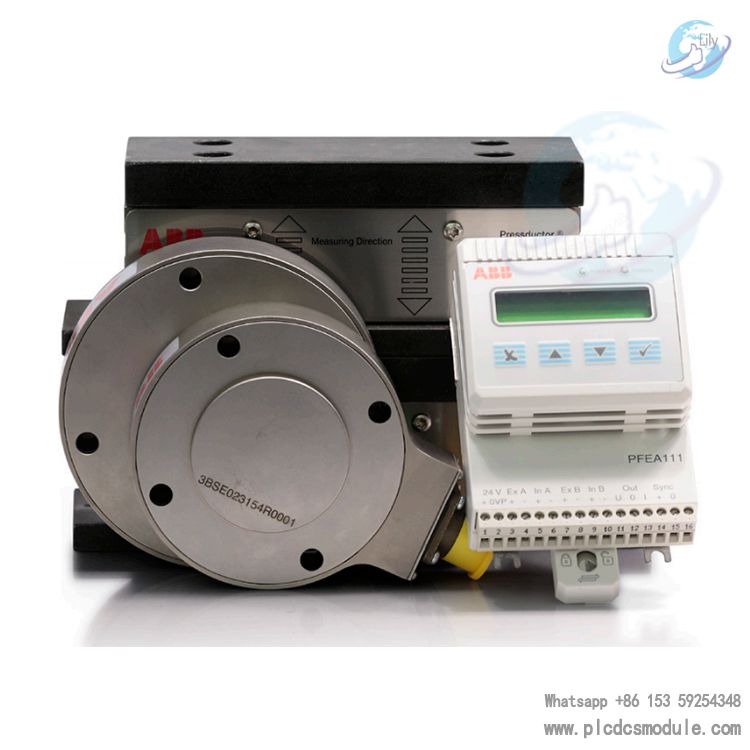
IV. Subtypes of Load Cells and Corresponding ABB Models
1. Pressductor Tension Sensors
Principle: Based on the magnetoelastic effect, using changes in the magnetic properties of steel materials under force to sense tension.
Features: Strong anti-interference capability, suitable for harsh environments; high stability, less affected by overload and impact.
ABB Models: PFTL101A series, such as PFTL101A-1.0kN with a load capacity of 1.0kN. Widely used in industrial weighing systems and force measurement in machinery/equipment, particularly in industries requiring high-precision material tension control (textiles, printing, packaging, cable manufacturing, metal processing, etc.). This model offers advantages like high-precision measurement, durability, and easy installation/maintenance, ensuring reliable and accurate measurement results.
2. Pillow Block Tension Meters (Categorized by Structural Form)
Structural Features: Support materials through tension rollers (pillow blocks), with tension acting on the roller shaft, and the sensor measures the force on the shaft.
Advantages: Direct contact with materials for intuitive measurement, suitable for strip and wire-shaped materials.
ABB Models: PFTL201C series, e.g., PFTL201C-50KN 3BSE007913R50 . Capable of measuring horizontal force components, it provides significantly higher stiffness and overload tolerance in all force directions than vertical load cells, suitable for industrial scenarios requiring high-precision tension measurement (e.g., large coil processing equipment).
3. Strain Gauge Tension Sensors (Categorized by Conversion Method)
Principle: Utilizes the characteristic that the resistance value of a strain gauge changes after deformation under force, converting tension into electrical signals.
Features: Relatively simple structure, lower cost, high measurement accuracy, and wide application range.
ABB Models: PFCL301E series, such as PFCL 301E 0.2kN (3BSE016580R200). Commonly used in industrial tension measurement and control applications, with specific measurement ranges to adapt to different tension levels, and capable of providing output modes like voltage signals, current signals, or digital signals.
4. Signal Processing Components (Not Direct Measurement but Closely Integrated with Tension Measurement Systems)
Function: Processes signals from pressure-sensing elements, standardizes them, and adapts them to common automation control systems.
Importance: Plays a key role in signal processing and transmission in industrial tension measurement and control systems.
ABB Model: PFEA111-65. This model typically features high precision and stability to ensure measurement reliability, along with dustproof, waterproof, and corrosion-resistant properties to adapt to harsh industrial environments.






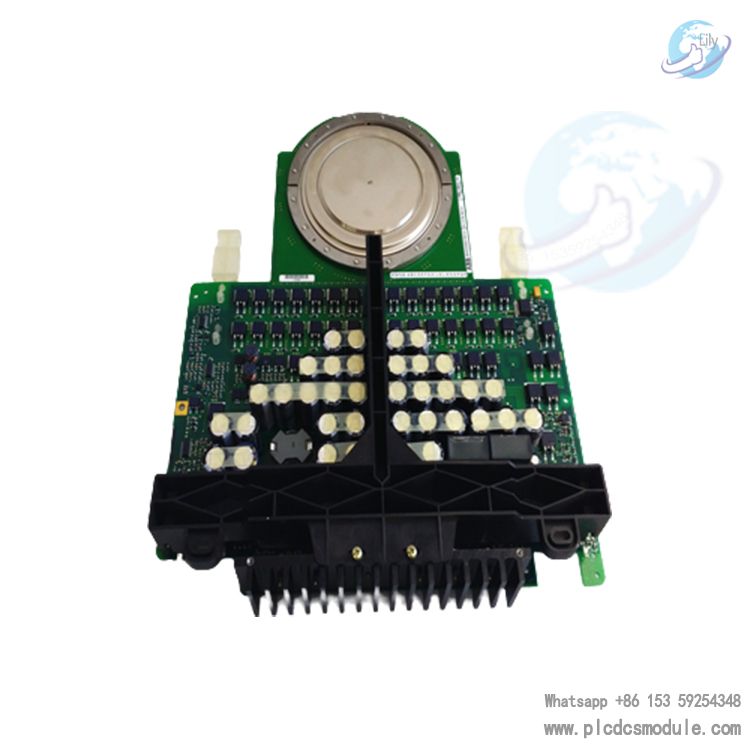
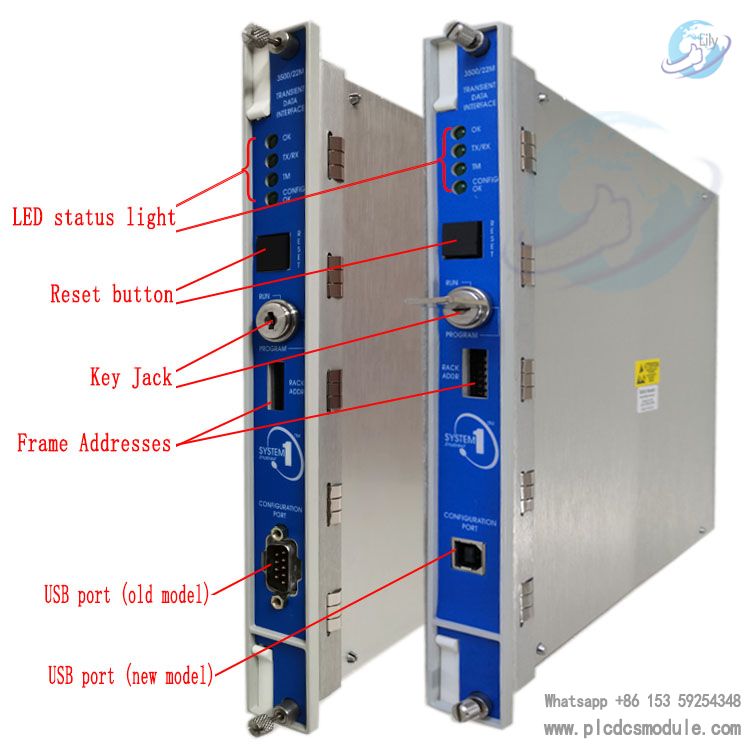
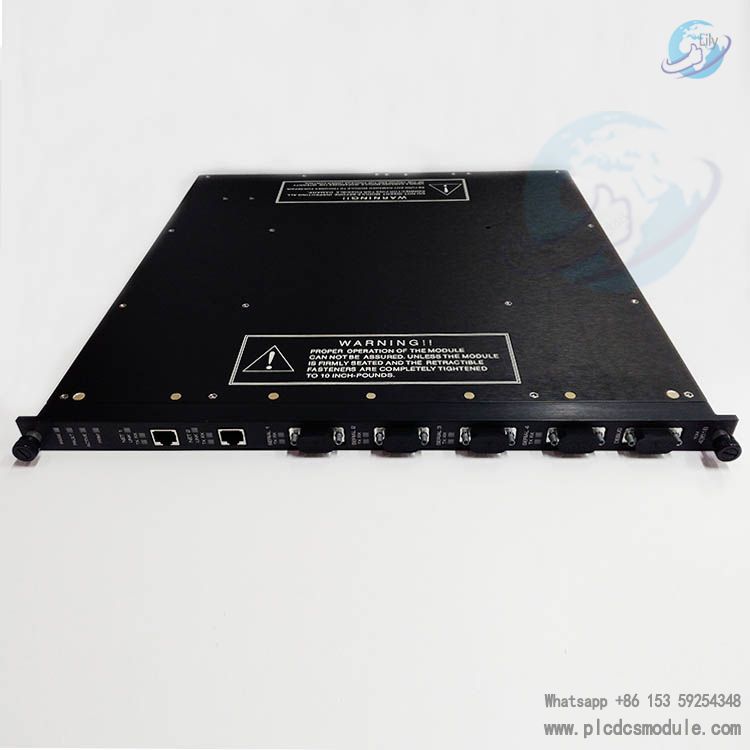
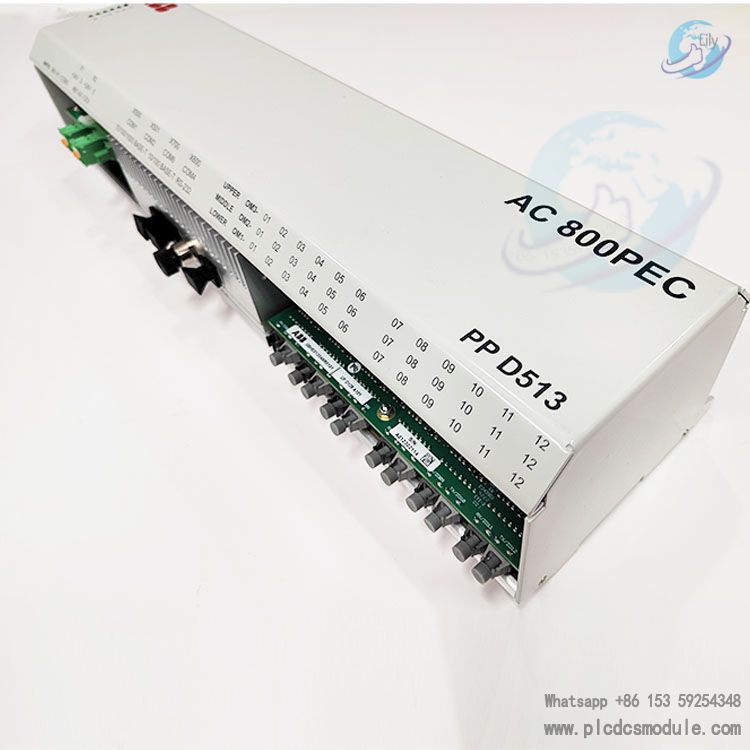
 3005319639
3005319639